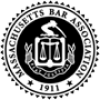- Free Consultation: (978) 531-7401 Tap Here to Call Us
How Does Medical Treatment Get Approved Through The Workers’ Comp System?
How Does Medical Treatment Get Approved Through The Workers’ Comp System?
This is a highly complicated question with no simple answers, and it’s a process that often leaves the injured employees scratching their heads and wondering why they can’t get the treatment they need.
After sustaining a work-related injury, your employer’s workers’ compensation insurance is responsible for any reasonable and related medical treatment you might need. Sections 13 and 30 provide for the payment of reasonable, necessary, and related medical treatment. This is not to say, however, that anything and everything submitted through this insurance will get approved. More often than not, disputes over medical treatment result in lengthy litigation. It is quite important in these situations to have an experienced, Massachusetts workers’ compensation lawyer to assist and guide you throughout this process, for the various reasons outlined in this article.
Following a work related injury, it is of vital importance to see a doctor as soon as possible. This is not only to ensure that the injury is treated quickly and effectively, but also to ensure that there is a paper trail. Even if the injury is relatively minor, a trip to the doctors office can pay dividends down the road; particularly in situations where the injury gets worse over time. At this initial visit, the general rule of thumb is to tell your doctor how the injury happened, and ensure that the doctor or the staff note that the injury happened at work. One of the most common reasons workers comp insurers deny claims is because there is no initial report of the injury. Don’t let this happen. Ensure that there is a paper trail.
Requests for medical treatment are made by the doctors’ offices. Treatment requests are submitted through a process called Utilization Review. Essentially, this is an outside company that reviews requests for medical treatment and makes a determination if the treatment is reasonable and necessary. If UR denies the treatment, the denial must be appealed. Usually, within 30 days. If it gets denied a second time, then a claim for medical benefits must be filed. It is important to note, however, that it must go through this two-part process before any claim can be filed.
If UR approves the requested treatment, this often means that the treatment can commence. However, UR is only part of the process. The workers comp insurance adjuster is the one who actually approves or denies the requested treatment. The adjuster is the final step and the adjuster can deny treatment requests even though UR deemed them reasonable and necessary. The adjuster makes the final determination as to whether or not he/she feels the treatment is related to the work injury.
Under both circumstances (a UR denial, or a denial from the adjuster), filing a claim for medical benefits is the only remedy to get the requested treatment approved. Once the claim is filed, the Employee’s attorney will have an opportunity to try and negotiate with the Insurer’s attorney. Often times, an agreement can be reached. If, however, the Insurer digs in it’s heels, the case may have to proceed further in the litigation process, and go before a Judge at a Conference, pursuant to Section 10A. The Judge then has the power to order the Insurer to pay.
This, however, is not the end of the road. The aggrieved party, either the Insurer or the Employee, has the right to appeal the Judge’s Conference Order. Then, the process is as follows: the Employee sees an Impartial Doctor pursuant to Section 11A, and, possibly, the matter is then heard at a Hearing, pursuant to Section 11. A Hearing is essentially a trial, where testimony is taken, usually by the Employee. Following a Hearing, the Judge will write a decision, ruling on the issue of the proposed medical treatment. Then, technically, the matter can be appealed further to the Reviewing Board, and, possibly, to Superior Court.
It is important to note that claims for mere medical treatment rarely proceed to a full Hearing or beyond. Most often, after the impartial report, the parties are able to come to an agreement on the issue of the treatment in question.
One final dilemma occurs when the doctor requests treatment and the insurer agrees to pay, BUT, the parties cannot come to an agreement as to the price/cost of the treatment. The MA Comp Law provides that a workers comp insurance company only has to pay whats known as a “DIA Board Rate.” This is an amount set by the Department of Industrial Accidents rate setting committee, and it basically states the maximum amount the workers compensation insurer will have to pay. So, after all this back and forth, it is fairly common for the parties to agree that the proposed treatment is needed, only to find that they cannot agree on the rate. In situations like this, the Employee’s attorney has to have the hard conversation with the Employee and often has to tell them that they have to find another doctor. This is extremely frustrating. It is, however, important to note that often time the workers comp insurance companies will pay above the DIA Board rate, as delaying treatment often only serves to prolong the Employee’s disability, of which they are also paying.
As you can see, this is a complicated process. It is also a process that takes time. And, in these situations involving claims for medical treatment, the Employee has very little option but to wait. This can be a very difficult time. And, this is why having an experienced Massachusetts Workers Comp Lawyer to represent you is extremely important. A knowledgeable and experienced comp lawyer can ensure that the treatment in question gets approved as quickly as possible. But, even still, a quick resolution over a simple request for medical treatment is not guaranteed. This is one of the many imperfections of the MA workers comp system.
At Troupe Law Office, we have over 40 years of experience solely in the representation of injured workers and their families. Please visit our web site at for more information. Or, call us at (978) 531-7401. We offer free consultations for all cases.










